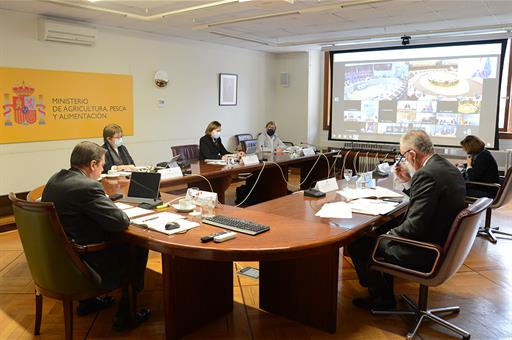That is what the fishing fleet needs to make the necessary planning of its business activity, declared the minister.
At the meeting, called to address the fishing possibilities for 2021 (and 2022 in the case of deep-water species) and the bilateral consultations between the EU and the UK in this regard, Spain has backed the Commission's proposal on these consultations, but with certain reservations.
Once the Trade and Cooperation Agreement between the European Union and the United Kingdom was reached on 24 December, the consultations to set Total Allowable Catches (TAC) and fishing quotas became a necessary step to establish the definitive fishing possibilities for each fleet for 2021 (and 2022 in the case of deep-water species).
Spain stressed its priority regarding bream in Zones 6, 7 and 8 and cod in the West of Scotland and the Celtic Sea. In this regard, he warned about the choking effect that may be caused due to the landing obligation if acceptable catch levels are not approved.
Spain will propose to maintain the current bream quota, which does not compromise the sustainability of the species but guarantees social and economic sustainability and jobs. For cod, it is calling for "realistic figures" to constitute quota pools, since it does not have its own allocation and the fleet acts according to these pools.
In the case of tusk, it has proposed that the TAC should be adapted to the scientific recommendation so as not to prejudice Spanish fishermen, which have a very small allocation of what is taken up in total. And, in a similar vein, it has expressed its concern over the technical arguments used for some species of rays.
Luis Planas called for the three pillars of the Common Fisheries Policy to be taken into account rather than the somewhat imprecise proposal, as the social, economic and employment dimensions are fundamental when setting the possibilities for annual fishing quotas. "Since we are responsible for fisheries policy, we should give them the consideration they deserve", he remarked.
Agreement with Mauritania
 On 15 November 2021, the latest sustainable fisheries agreement will conclude, which will be signed between the EU and Mauritania, having been extended for two years. This is a highly important protocol for the European and Spanish seafood, tuna and pelagic trawl fleets, as well as for fresh hake and saurel.
On 15 November 2021, the latest sustainable fisheries agreement will conclude, which will be signed between the EU and Mauritania, having been extended for two years. This is a highly important protocol for the European and Spanish seafood, tuna and pelagic trawl fleets, as well as for fresh hake and saurel.
This point has been addressed upon a request from Spain, since it is the most important agreement in terms of fishing possibilities and the EU's financial contribution to a developing country. The minister supported the terms in which the agreement was proposed and urged the European Commission to take the necessary steps to make progress in the next round of negotiations, scheduled for 25 and 26 February.
Non official translation





